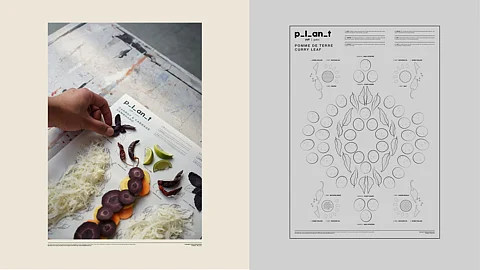
- HOMEGROWN WORLD
- #HGCREATORS
- #HGEXPLORE
- #HGVOICES
- #HGSHOP
- CAREERS
- ABOUT US
- CONTACT US

When I think of plant-based dishes, I think of being four years old and sitting on the kitchen counter, with my feet dangling off the edges, as my mother made a Cabbage Thoran. She’d make it in a cast iron chatti, and I’d sit and chat as she’d move around me; the final dish would be bright yellow from turmeric, dotted with mustard seeds from the tempering and enriched with oodles of coconut that was blended with cumin, shallots and green chilli.
It barely took 7 ingredients and the duration of a few scattered conversations, until my mum would serve up the dish with piping hot rice and a drizzle of coconut oil on top. It was a weekly staple that I came to equate to home.
Twenty years later in a college dorm in Pondicherry, I made the same dish with my roommates, when all we had was an induction cooker, and a non-stick skillet. But we could get the same 7 ingredients and sure, we couldn’t mimic the texture of blending the ingredients down like my mother did, nor attain the depth of flavour of cooking in a cast iron chatti. And yet, somehow in bringing all the ingredients together, cooking it in coconut oil, and pairing it with hot rice, it would taste like home to us, especially as those living alone.
There is an innate beauty in the simple construction of most plant-based dishes, no matter where they come from. From the Gujarati Sambharo to a Pomme De Terre Curry Leaf dish recipe of his own, the dishes chosen by London-based designer Rohit Nandha’s for his intersectional research project ‘p_l_a_n_t’ are simple yet nourishing and reflect this simplicity. Drawing from architecture and the poetics of food, this project is a series of one-page recipes created by the designer to educate and encourage a plant-based future.
Poetics of Food is a concept that has been led by farmer and writer Jessica Gigot, which essentially urges one to pay closer attention to food and perceive it as the poetry of one’s life. In having people think more intentionally about what they eat, where it comes from, and the many other questions behind it, the concept seeks to create a shift in values to develop better and more enduring food systems.
“As more people think daily about what they eat, where it comes from and why, the closer we will be to our food supply and the people and land that grew it,”
Jessica Gigot
This thought is the core tenant of the concept and p_l_a_n_t has been created by Rohit Nandha with the intent to simplify the concept of feeding ourselves, cooking for one and living a plant-based existence. In stripping down the traditional cookbooks and creating the single-page format of recipes that are simplistic, instructional, with even the ingredients drawn to scale, the designer is letting many aspects of his architectural background to shine through. But conceptually, he is addressing and eliminating challenges to being plant-based, and of making culturally rooted meals , with the concept of Food Poetics in mind.
According to the feature he did with 'Where The Leaves May Fall' magazine, this project by Rohit Nandha was aimed at “Educating our communities on the planet and a plant-based diet, as well as inspiring the youth and getting them excited by how cooking could play a significant role in shaping the future of the food systems.”
The designer of veritable knowledge in architecture, according to his website, defines this project as one that uses speculative scenarios and hands-on artefacts to construct current & future narratives.” The London-based, South-Asian origin designer had worked extensively at a whole host of architecture and design practises both in the UK and beyond. But through this particular project, as well as those like Seva, he approaches contemporary food standards, cultural culinary rituals and architectural strategies and visualises through his unique regenerative perspective.
You can follow the project here.
If you enjoyed reading this, here's more from Homegrown:
Indian Creator Harman Taneja's Resin Art Challenges Established Notions of Form
'The Identity Potluck' Uses Food To Navigate The Identities Of Multicultural Creatives
'Dhoop' Is An Indian Zine Capturing Food Culture And Its Intersection With Sustainability
